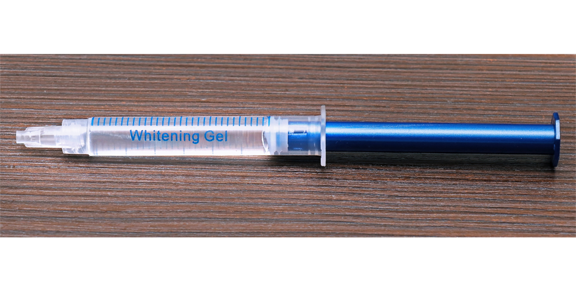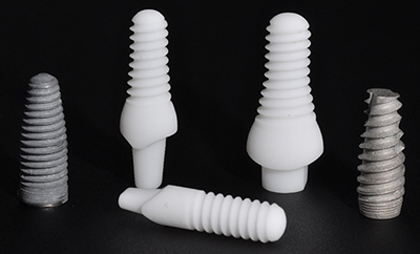For the past 12 years, I have sought natural remedies whenever possible and limit toxins in my body. I have an old dental crown that I want removed, but I am concerned about what the new crown will contain. I researched ceramic crowns and wonder if any trace of metals or lithium is in the crowns. Although I do not have known metal allergies, I am trying to protect my compromised thyroid. Also, I am considering teeth whitening before I replace the crown. But how do I find out what is in the teeth whitening gel that dentists use? Thanks for your help. – Bianca from ME
Biana,
Thank you for your inquiry. We are happy to answer your questions.
Is There Any Metal in All-Ceramic Crowns?
All-ceramic crowns do not contain metal. But it is not possible to avoid metal ions in the crowns. Every dental ceramic we are aware of contains metal ions. What is the difference?
Metal vs. Metal Ions in Dental Crowns
The information below will help you understand that although dental ceramics contain metal ions, they do not contain the type of metals commonly known to provoke reactions.
Iron
- Iron – Iron is a metal.
- Rust – Rust is formed when iron combines with oxygen—producing iron oxide. Although rust contains iron ions, it is not a metal.
- Iron ions – The human body does not iron in metal form, but it does contain iron ions, which are essential to life, and the hemoglobin in our blood.
Sodium
- Sodium – Sodium as a pure metal is toxic, but as a metal ion combined with chlorine, it becomes sodium chloride—or table salt—which is essential to life.
- Lithium – In the same family as sodium, lithium is so reactive that it is found only in ionic form when combined with other elements.
- Lithium disilicate is a strong ceramic that produces dental crowns, including e.max crowns.
Zirconium
- Zirconium – It is a metal that in ionic form and combined with oxygen becomes zirconia. Zirconia crowns are high strength. Zirconia is used to build dental bridges without a metal framework.
Other Metal Ions
Other metal ions in the human body and essential to life:
- Calcium
- Cobalt
- Copper
- Magnesium
- Manganese
- Molybdenum
- Potassium
- Zinc
We are not aware of the ceramics we mentioned provoking sensitivities or an allergic reaction. Most people who are want holistic or biological dental materials choose ceramic crowns.
- Experienced cosmetic dentists understand which dental ceramics are best for anterior, or front, teeth. And they know which ceramics to use on molar teeth to withstand the forces of chewing and grinding food.
- Some dental crowns are layered with glass on the outside to increase the aesthetics. Glass is pure silica (silicon dioxide). Leucite glass contains aluminum tectosilicate.
What Does Tooth Bleaching Gel Contain?

Although you can ask the dental office what the bleaching gel contains, your comfort might increase if you check all the ingredients online.
One popular brand of professional bleaching gel lists these ingredients:
- 40% hydrogen peroxide
- 1.1% sodium fluoride
- 3% potassium nitrate
- a unique chemical activator
Advanced cosmetic dentists are familiar with the types of ceramic crowns available and will work with you to find a crown that meets your dental needs.
Best wishes for your ceramic crown and a brighter smile!
Michael Szarek, DMD, an accredited cosmetic dentist in Lowell, MA, sponsors this post.

